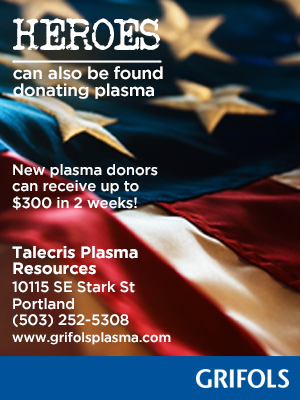The DEA restrictions, adopted to curb opioid abuse, mean many vets have to make more appointments with an already overburdened VA

Craig Schroeder, who was injured in 2006 while serving with the Marines in Iraq, suffers from traumatic brain injury and pain, for which he has been on a steady regimen of opioids. (Ted Richardson/For The Washington Post)
New federal rules that make it harder to get narcotic painkillers are taking an unexpected toll on thousands of veterans who depend on these prescription drugs to treat a wide variety of ailments, such as missing limbs and post-traumatic stress.
The restrictions, adopted last summer by the Drug Enforcement Administration to curb a national epidemic of opioid abuse, are for the first time, in effect, forcing veterans to return to the doctor every month to renew their medication, although many were already struggling to get appointments at overburdened VA health facilities. And even if patients can get appointments, the new rules pose an additional hardship for many who live a good distance from the health centers.
Although the tighter regulation applies to everyone on opioid painkillers, it’s hitting veterans especially hard because so many are being treated for horrific injuries sustained during the long wars in Iraq and Afghanistan and have become dependent on the Department of Veterans Affairs’ beleaguered health-care system for medical care.
The rules come at a time of turmoil for VA. The agency’s widespread problem with patient backlogs burst into view last year with revelations that employees had covered up how long veterans had to wait for care, even for such pressing matters as cancer and suicide prevention.
In dramatically curtailing access to the highly addictive painkillers, the government is trying to roll back what the Centers for Disease Control and Prevention has termed “the worst drug addiction epidemic in the country’s history, killing more people than heroin and crack cocaine.” The rules apply to “hydrocodone combination products,” such as Vicodin.
More than half a million veterans are now on prescription opioids, according to VA.
Pain experts at VA say that in hindsight they have been overmedicating veterans, and doctors at the Pentagon and VA now say that the use of the painkillers contributes to family strife, homelessness and even suicide among veterans. A study by the American Public Health Association in 2011 also showed that the overdose rate among VA patients is nearly double the national average.
But some veterans say they have come to depend on these painkillers to function and now, unable to get a timely renewal of the prescription, are suffering withdrawal symptoms that feel like a panic attack and the flu at the same time.
Craig Schroeder was injured in a makeshift-bomb explosion while serving as a Marine corporal in the “Triangle of Death,” a region south of Baghdad. He suffers from traumatic brain injury, which has affected his hearing, memory and movement, and from pain related to a broken foot and ankle and a herniated disc in his back. He has been on a steady regimen of opioids.
But after the DEA regulations were put in place, he was unable to get an appointment to see his doctor for nearly five months, he said. He stayed in bed at his home in North Carolina much of that time.
“It was a nightmare. I was just in unbearable, terrible pain,” he said. “I couldn’t even go to the ER because those doctors won’t write those scripts.
”His wife, Stephanie Schroeder, said getting him a VA appointment turned into a part-time job and her “main mission in life.” While part of the problem was a shortage of doctors, she said she also noticed that VA had become hostile toward patients who asked for painkillers.
“Suddenly, the VA treats people on pain meds like the new lepers,” she said. “It feels like they told us for years to take these drugs, didn’t offer us any other ideas, and now we’re suddenly demonized, second-class citizens.
”Officials at Disabled American Veterans, a veterans service organization, said VA needs to be more compassionate and help veterans through the changes.
“We’re hearing from veterans with lifelong disabilities, who never had a problem with addiction issues. They have been on these drugs for decades, and then all of a sudden it was boom, a total change in attitudes,” said Joy Ilem, the group’s deputy national legislative director.
Gavin West, a clinical operations chief at VA, said there has been a systematic effort since autumn to contact veterans to explain the new rules, broader concerns about opioid use and alternative options for treatment. At the same time, he said, the agency is working to ensure that veterans get the access to medical care that’s required.
“The DEA did a good thing here for opioid safety,” he said. But he added, “How do you balance the sensitivity of patients and the new rules when all of a sudden a veteran, who’s been treated with this medication for 15 years or 20 years, has everything change?”
To help patients adjust to the changes, Rollin Gallagher, VA’s national director for pain management, said staff members are meeting personally with veterans. “There is the real anxiety of being in pain and losing control of that pain. We are aware of the fact that we need to pay attention to this,” he said.
The agency recently set up a Choice Card program for veterans, which would allow those facing long wait lists or who live more than 40 miles away from a VA hospital to use private clinic visits. Veterans say the initiative iscomplicated and confusing. VA officials acknowledged this month that veterans have been using this program at a lower rate than anticipated.
[Veterans say new choice cards are causing more problems]
DEA officials declined to comment on the specific challenges that the new rules pose for veterans. Barbara L. Carreno, a DEA spokeswoman, said in a statement that everyone, including “practitioners employed by the U.S. Veterans Administration,” have to follow the new regulations. The officials said the rules are a response to multiple medical studies that have showed that the opioid overdose rate is higher in the United States than anywhere else.
DEA officials offer some flexibility, allowing doctors to write prescriptions for up to 90 days by post-dating them. But many VA doctors will not do that because of concerns over fraud or fatal overdoses; doctors are telling patients they need to come back every month, medical staff say.
Half of all returning troops suffer chronic pain, according to a study in the June issue of the Journal of the American Medical Association. So a new generation of pain doctors is pushing for alternative ways to help veterans cope with chronic pain. Some alternatives are acupuncture, bright light therapy and medical marijuana. As part of a $21.7 million initiative with the National Institutes of Health, VA is looking for therapies that could substitute for opioids.
“Our hospitals are doing some really exciting things to combat chronic pain and take care of our veterans. There are VA hospitals that are using alpha-stimulation devices to treat pain and depression,” VA Secretary Robert McDonald said. “That’s only going to continue and keep getting better. And we are getting there.”
[Federal research seeks alternatives to addictive opioids for veterans in pain]
In the meantime, however, veterans say they continue to bear the burden of the new restrictions on narcotic painkillers.
A retired staff Army sergeant who served in Iraq, who spoke on the condition of anonymity for medical privacy reasons, said he can’t drive because of shrapnel in his femur and pelvis. He takes the bus nearly two hours for “a one-minute consult” to get his medications. He has been taking them for more than nine years and has never had an addiction problem, he said.
Mike Davis, a retired Army corporal, said he shattered his left arm from the elbow to the fingertips when he fell off of a Pershing missile during maneuvers in Germany in 1979. Over the years, he has had six surgeries.
After the last one, in 2003, he was prescribed opioids and said he has been on them since. Davis, who now works as a social worker in Illinois, said he feels lucky to have found a combination of painkillers that works for him.
“It’s just insulting to the veteran to assume they are abusing these drugs,” said his wife, Linda Davis, who works as his personal patient advocate. “I’m fully aware that people doctor-shop, some docs overprescribe. But I think they need to realize that there’s a real difference between addiction and dependence.
”But Andrew Kolodny, president of Physicians for Responsible Opioid Prescribing, called the new DEA rules “the single most important change that could happen. The best way to treat any disease, whether it’s Ebola or opioid addiction, is to stop creating more people with the disease.”
At the same time, he said, VA needs to do far more to help veterans through the rocky transition.
“Unfortunately, veterans are the victims here,” Kolodny said. “The VA created this mess by aggressively jumping onto pills as the solution. But it’s not something you can just abruptly stop.”



